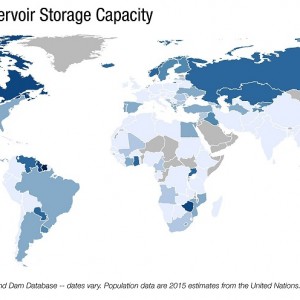The Stream, December 10: First Vaccine for Dengue Fever Approved By Mexico
The Global Rundown |
Mexico approved the first vaccine to prevent dengue fever, a disease spread by mosquitoes that thrives in cities where standing water is present. Glaciers continue to retreat at a rapid pace in China, and scientists predict nearly a quarter of Alaska’s permafrost could melt by 2100. Kentucky agreed to fine and effectively ban a coal mining company that violated the Clean Water Act, and the Supreme Court of Canada decided to allow First Nations lawsuits to proceed against mining company Rio Tinto.
“We are making dengue a preventable disease, which makes us incredibly proud.”–Olivier Charmeil, executive vice president of vaccines at French pharmaceutical company Sanofis, on the world’s first vaccine for dengue fever, which has been approved in Mexico and may be approved by 19 more countries. Dengue fever is spread by mosquitoes and often occurs in urban environments where containers collect standing water where mosquitoes can breed. (Bloomberg)
By The Numbers |
$500,000 Amount Kentucky is fining a coal mine for thousands of Clean Water Act violations. If the company applies for any future mining permits in the state, it must pay an additional $2.75 million. Associated Press
16.4 meters Average distance China’s Mengke Glacier retreated each year between 2005 and 2014, double the rate during the previous decade. The New York Times
Science, Studies, And Reports |
Between 16 and 24 percent of Alaska’s permafrost –ground that is constantly frozen– could melt by the end of the century, according to estimates by the U.S. Geological Survey. Thawing permafrost could release more carbon into the atmosphere, contributing to warmer temperatures that in turn melt more permafrost. Guardian
On The Radar |
Decisions by the Supreme Court of Canada will allow two legal challenges pursued by First Nations communities to continue against Rio Tinto, a global mining company based in London. One lawsuit, brought by First Nations communities in British Columbia, aims to restore water to the Nechako River, where a hydropower dam was built in the 1950s to power an aluminum smelter that Rio Tinto purchased in 2007. Bloomberg
A news correspondent for Circle of Blue based out of Hawaii. She writes The Stream, Circle of Blue’s daily digest of international water news trends. Her interests include food security, ecology and the Great Lakes.
Contact Codi Kozacek






Leave a Reply
Want to join the discussion?Feel free to contribute!